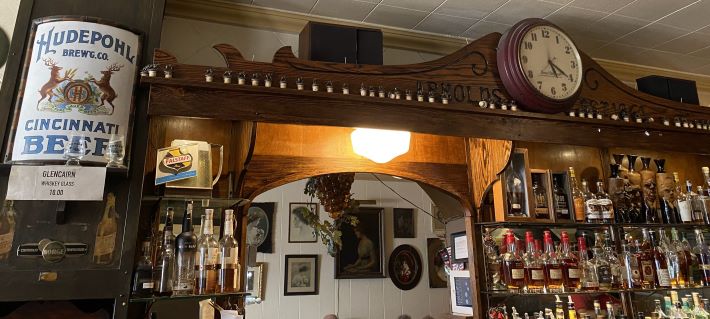
The New York Times and Wired magazine posted stories this past week about how science may, as it has for centuries, change beer. In one case, the goal is not to change the flavor. In the other, the goal is both to eliminate an unwanted flavor and to enhance new exotic ones.
“As water sources, particularly in the western United States, dry up from overuse, drought and climate change, supporters of direct potable reuse — the use of treated wastewater in the drinking water supply — are pitching it as part of the solution,” The Times reports. “Increasingly, they are turning to beer as a way of getting people beyond the ‘ick factor’ that has been a hurdle to its broader acceptance.”
There is a “toilet to tap” perception problem . . . even though in Scottsdale, Arizona, the purifying process “involves ozone infusion, microfiltration and reverse osmosis, in which water is forced across a membrane to remove dissolved minerals and other impurities. The water is then zapped with ultraviolet light.”
The Wired story begins with details about how modified strains from Berkeley Yeast eliminate diacetyl. It barely touches upon other products from Berkeley responsible for freeing compounds that add to tropical aromas and flavors top hop-forward beers, be they hazy or clear. And it doesn’t mention Omega Yeast at all, which any story about modified yeast strains should.
I can’t get behind the headline that asserts “Gene-Edited Yeast Is Taking Over Craft Beer” but they certainly point to an aroma/flavor destination that interests brewers and drinkers. It is one that hop growers are certainly paying attention to. “I believe we could see an even bigger push toward hops that work with these new yeast strains,” says Brian Tennis, the founder of the Hop Alliance. “As hop growers, we need to make sure we are growing what the market demands.”
You might also enjoy
Beer lessons learned in Oklahoma. Jeff Alworth admits “parachuting into any region is never going to provide me the nuances of a place,” but nonetheless he shares many thoughts. Also, a) I really want to visit Big Friendly, and b) perhaps this reflects my Midwest heritage, but I do not recall Joe Prichard’s accent being particularly thick.
New Jersey’s Governor Is Screwing Its Breweries. When we were in New Jersey earlier this month, brewery operators I spoke with thought the a bill that would enact changes intended to benefit them would be signed in law by now. It hasn’t been, and the explanation is not simple.
One of Colorado’s ‘brightest risers’ is suddenly closing. How tenuous might things be for some small breweries? Apparently, a rainy June did in Uhl’s Brewing in Boulder. [Additional reading.]
The price of beer. “Super-deals of EUR 9.99 (USD 11) for a crate of beer (10 liters) have become a rare sight” in Germany. And draft half liters cost a heck of a lot more. In the UK, a pint of beer is 127% more expensive than world average of £2.60. The United States is the ninth most expensive country for beer on average, with a pint costing £6.22 ($8) on average. They aren’t that expensive at Arnold’s (pictured at the top) in Cincinnati, even before a $2 discount during happy hour.